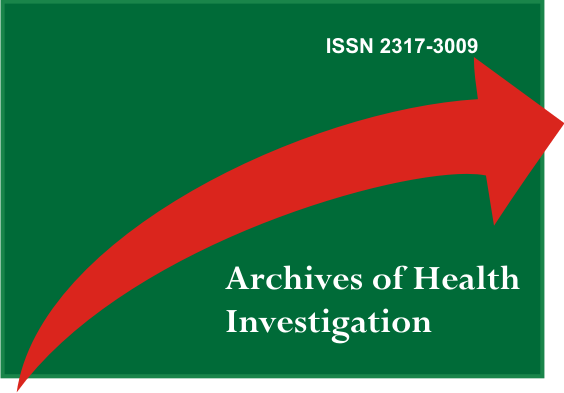The importance of the teacher of physical education in the childish development
DOI:
https://doi.org/10.21270/archi.v7i2.2400Resumo
With the intent to show the importance to accompany the development psychomotor of the boy from the first stages of life, the present article looks for to emphasize the big relevance is the participation of the teacher of Physical Education in the Childish Education. In this sense the text finds divided in three stages: the introduce on, which aimed our general and specific aims in relation to the study realized, like this as the authors that evidence the value of this professional in the side dish of boys of 0-5 years of age; the development will highlight the main points of the process of education and learning of the physical education, with the side dish of professional properly enabled in consonance with the polyvalent teacher and also, show the municipalities that already regulated laws that force the presence of such professional and, at last, the final considerations, where we report the failures of the Universities in giving the owed relevance for this area inside the graduation in Pedagogy.Descriptors: Faculty; Physical Education and Training; Child Rearing; Psychomotor Performance.
Downloads
Referências
Brasil, Ministério da Educação e Cultura. Lei de Diretrizes e Bases para a educação Nacional n. º 9.394/96. Brasília: MEC/FAE, 1996.
Freire ES, Soriano JB, De Santo DL. O Conhecimento da Educação Física escolar. In: I Congresso Latino-Americano e II Congresso Brasileiro de Educação Motora. Foz do Iguaçu, outubro, 1998.
Almeida L. A tematização das lutas na Educação Física escolar: restrições e possibilidades. Movimento, Porto Alegre. 2007; 13(3):91-110.
Betti M. Educação Física e sociedade: a educação física na escola brasileira. São Paulo: Editora Hucitec; 2009
Gallahue D, Ozmun J. Compreendendo o desenvolvimento motor: bebês, crianças, adolescentes e adultos. São Paulo: Phorte; 2005.
Le Boulch J. Educação Psicomotora: a psicocinética na idade escolar 2 ed. Porto Alegre: Artmed;1988.
Kobal MC, Barbosa E, Santos JSG. Educação Física na Educação Infantil: visão dos professores, da direção e dos pais. In: V Congresso Internacional de educação Física e Motricidade Humana e XI Simpósio Paulista. Universidade Estadual Paulista – Rio Claro, abril, 2007
Piaget J. A formação do símbolo na criança: imitação, jogo, sonho e representação. Rio de Janeiro: Zahar; 1975
Vygotsky LS. A construção do pensamento e da linguagem. São Paulo: Martins Fontes; 2001.
Wallon H. A evolução psicológica da criança. Lisboa: Edições 70; 1995
Brasil, Ministério da Educação e do Desporto. Referencial curricular nacional de educação infantil: introdução. Brasília, 1998.
Toledo E. Proposta de conteúdos para a ginástica escolar. Proposta de conteúdos para a ginástica escolar: um paralelo com a teoria de Coll [dissertação]. Campinas: Faculdade de Educação Física, Universidade Estadual de Campinas-UNICAMP; 1999.
Educacao aprova licenciatura obrigatória para professor de educacao fisica. html Disponível em : http://www2. camara.leg.br/camaranoticias/noticias/ESPORTES/438337. Acesso em: 29 julho 2017.
Freire JB. Educação de Corpo Inteiro. São Paulo: Scipione; 1997.
Cavalaro AG, Muller VR. Educação Física na Educação Infantil:uma realidade almejada. Educar, Curitiba. 2009; 34: 241-50.


